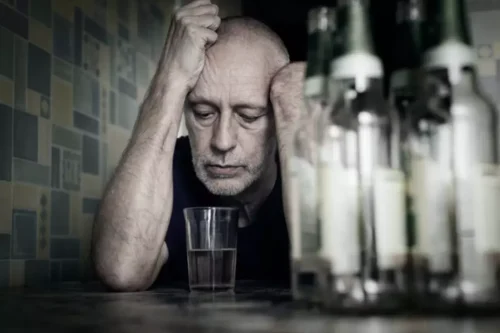
Ultimately, your overall sleep quality will take a hit as the alcohol starts to metabolize and its effects begin to wear off. And when this happens night after night, you’ll find yourself dealing with insomnia. During the second half of the night, sleep becomes more actively disrupted.
Surprising Ways Hydration Affects Your Sleep
- An older study concluded that alcohol might reduce sleep in the first half of sleep and increase disruption in the second half.
- If a person chooses to consume alcohol, drinking in moderation several hours before bed is the best practice for avoiding sleep disturbances.
- During sleep, a person’s heart rate should slow and drop to below 60 beats per minute.
- Alcohol increases levels of adenosine, a key component of the homeostatic drive.
- Your deep restful sleep tends to be more prevalent in the first few hours but decreases during the second half.
However, there are many coping skills a person can practice to improve their sleep. People with co-occurring medical conditions have an even higher risk of developing insomnia and/or substance use disorder. Along with prescription medications and folk remedies, many have incorporated a glass or two of alcohol into their nightly routine to try to catch a few more hours of shuteye. The key is to drink in moderation and give yourself time before going to bed, so the alcohol can clear your system. Circadian rhythms affect how the body responds to alcohol, depending on the timing of alcohol intake.
- If you’re turning to alcohol to help you sleep, you may be making the quality of your sleep worse.
- If you’re experiencing sleeping issues, whether related to alcohol consumption or not, consider talking to your health care provider or a sleep specialist.
Evidence Based
Your health and wellness is unique to you, and the products and services we review may not be right for your circumstances. We do not offer individual medical advice, diagnosis or treatment plans. People who go to bed with alcohol in their system may be more likely to wake early in the morning and not be able to fall back to sleep, another consequence of the rebound effect. Circadian alcohol insomnia rhythms regulate nearly all of the body’s processes, from metabolism and immunity to energy, sleep, and sexual drive, cognitive functions, and mood. Consuming alcohol and experiencing restricted sleep reduces alertness during the day.
- People with insomnia have an increased risk of developing alcohol use disorder, potentially because many individuals turn to alcohol as a sleep aid.
- Those with sleep disorders should proceed with extra caution before reaching for that evening drink.
- When insomnia symptoms persist beyond four weeks and are accompanied by daytime impairments and/or psychological distress, adjunctive sleep treatments should be initiated.
- It’s best to cut off drinking alcohol at least four hours before bedtime.
- She is also a fellow of the College of Chest Physicians, as well as the American Academy of Sleep Medicine (AASM).
Nutrition and Sleep: Diet’s Effect on Sleep

Staying hydrated, eating alcoholism bland foods, and steeling yourself for a rough night are good ideas too. Those with sleep disorders should proceed with extra caution before reaching for that evening drink. Research shows that it can increase the risk of certain sleep disorders and parasomnias while exacerbating the symptoms of others. Sleep apnea is a common disorder that causes breathing to repeatedly stop and restart during sleep, affecting the amount of oxygen your body gets. Individuals with sleep apnea often snore, gasp for air while asleep and wake frequently throughout the night. You may wake feeling tired, groggy and not well rested—even if you seemingly slept the entire night.
What alcohol actually does to your sleep cycles

This article reviews the relationship between alcohol and insomnia, including how alcohol can affect sleep quality alongside the risks of poor sleep quality. It also considers ways to manage insomnia and prevent sleep disruption and answers some frequently asked questions. For people who snore or who have sleep apnea—a disorder that causes repeated pauses in breathing during sleep—drinking alcohol tends to aggravate symptoms.

Alcohol abstinence and sleep disruptions
Targeting insomnia during recovery from alcohol dependence may thus improve treatment outcome for the alcoholic patient. For many people who drink moderately, falling asleep more quickly may seem like an advantage of a nightly glass of wine. Small amounts of alcohol may cause short-term sleep disturbances, but frequent and large quantities of alcohol consumption may lead to chronic insomnia for certain individuals. While drinking alcohol before bedtime may help you feel relaxed and sleepy, enjoying a nightcap puts you at risk of experiencing repeated wakings and low-quality sleep later in the night. If alcohol continues to disrupt your overall sleep quality, you may consider cutting it out entirely, or =https://ecosoberhouse.com/ limiting your intake before bedtime.

